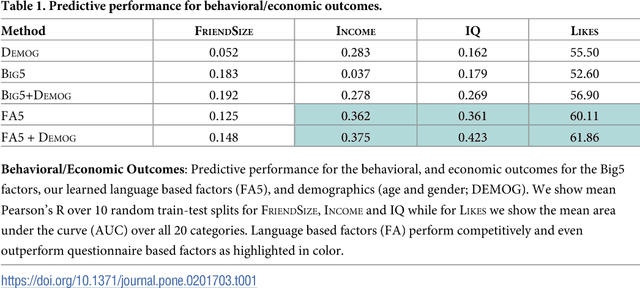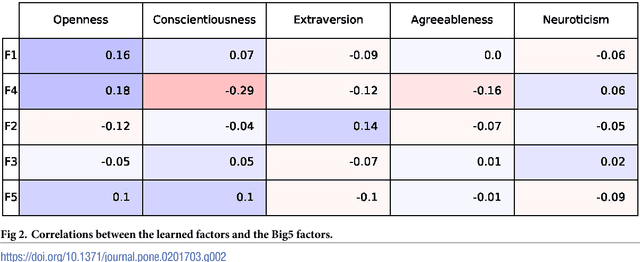Margaret L. Kern
PsychAdapter: Adapting LLM Transformers to Reflect Traits, Personality and Mental Health
Dec 22, 2024



Abstract:Artificial intelligence-based language generators are now a part of most people's lives. However, by default, they tend to generate "average" language without reflecting the ways in which people differ. Here, we propose a lightweight modification to the standard language model transformer architecture - "PsychAdapter" - that uses empirically derived trait-language patterns to generate natural language for specified personality, demographic, and mental health characteristics (with or without prompting). We applied PsychAdapters to modify OpenAI's GPT-2, Google's Gemma, and Meta's Llama 3 and found generated text to reflect the desired traits. For example, expert raters evaluated PsychAdapter's generated text output and found it matched intended trait levels with 87.3% average accuracy for Big Five personalities, and 96.7% for depression and life satisfaction. PsychAdapter is a novel method to introduce psychological behavior patterns into language models at the foundation level, independent of prompting, by influencing every transformer layer. This approach can create chatbots with specific personality profiles, clinical training tools that mirror language associated with psychological conditionals, and machine translations that match an authors reading or education level without taking up LLM context windows. PsychAdapter also allows for the exploration psychological constructs through natural language expression, extending the natural language processing toolkit to study human psychology.
Latent Human Traits in the Language of Social Media: An Open-Vocabulary Approach
May 22, 2017



Abstract:Over the past century, personality theory and research has successfully identified core sets of characteristics that consistently describe and explain fundamental differences in the way people think, feel and behave. Such characteristics were derived through theory, dictionary analyses, and survey research using explicit self-reports. The availability of social media data spanning millions of users now makes it possible to automatically derive characteristics from language use -- at large scale. Taking advantage of linguistic information available through Facebook, we study the process of inferring a new set of potential human traits based on unprompted language use. We subject these new traits to a comprehensive set of evaluations and compare them with a popular five factor model of personality. We find that our language-based trait construct is often more generalizable in that it often predicts non-questionnaire-based outcomes better than questionnaire-based traits (e.g. entities someone likes, income and intelligence quotient), while the factors remain nearly as stable as traditional factors. Our approach suggests a value in new constructs of personality derived from everyday human language use.
 Add to Chrome
Add to Chrome Add to Firefox
Add to Firefox Add to Edge
Add to Edge